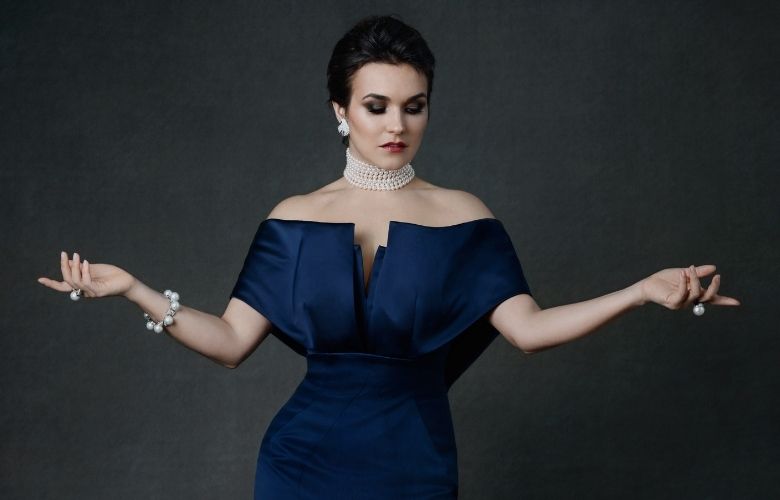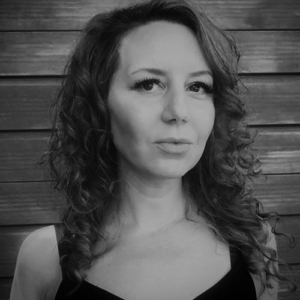
Opera Australia presents two performances of Maria Stuarda, on 23rd and 25th March. Ahead of this exciting concert, we speak to Romanian Mezzo-Soprano Carmen Topciu, and Italian Maestro Renato Palumbo.
“A throne is not made for two… Which Queen will rule her country and his heart?
Every aria demands greatness. Some interpretations transcend talent to reach for the sublime. With its intense trills and stratospheric highs, Maria Stuarda calls for a true prima donna to portray the ill-fated monarch in this concert rendition of Donizetti’s bel canto masterpiece.
International superstar soprano Olga Peretyatko takes up the mantle of La Superba Montserrat Caballé and La Stupenda Joan Sutherland, giving us a Mary Queen of Scots of lyrical beauty.
Her coloratura finds its counterpoint in the darker tones of mezzo-soprano Carmen Topciu, who debuts as Mary’s steel-hearted cousin Queen Elizabeth I.
Bound by blood but divided by their beliefs, the rivalry between Mary and her former ally, the brilliant Virgin Queen, couldn’t be more bitter. Hanging in the balance is the English throne, and Leicester’s love.
French bass Nicholas Testé is masterful as Mary’s confessor Talbot while Giuseppe Gipali as The Earl of Leicester. Renato Palumbo conducts this exquisite cast.
Let the power games begin!”
Mezzo-soprano Carmen Topciu, born in Cluj-Napoca (Romania), graduated in singing at the Conservatoire of Music and Drama Art ‘’Gheorghe Dima’’ and debuted in Romania in 2006 as Rosina in Il Barbiere di Siviglia by Rossini. Carmen Topciu won many competitions, amongst other ‘’Hariclea Darclee’’ in Romania and As.Li.Co. in Italy for Angelina rola in La Cenerentola by Rossini. Her debut in Italy was in 2011 in La Cenerentola production tour for the theatres in Lombardia province Teatro Grande in Brescia, Fraschini in Pavia, Ponchielli in Cremona, Sociale in Como and also Municipale in Piacenza. In 2012- 2013 season she comes back to Italy for L’Italiana in Algeri by Rossini through the same tour in Lombardia theatres and Teatro Alighieri in Ravenna.
Carmen Topciu has been greatly acclaimed by the critique for her recent performance in the new production of Anna Bolena at the Sydney Opera House, directed by David Livermore, under the baton of Maestro Renato Palumbo.
Her most recent and upcoming engagements: Cavalleria Rusticana in Bari, the debut as Eboli in Don Carlos in Frankfurt, Anna Bolena at Bolshoi, Carmen at the Sydney Opera House, Aida in Bari and Venice and another debut for a Maria Stuarda production in 2021 at the Sydney Opera House.
Preparing for Maria Stuarda has been a long process because the production was postponed due to the pandemic, so I started looking at the score two years ago, then I left it, and returned to it. It is my debut as Elisabetta, and it’s always a challenge debuting because you have no references in your voice, only if you did sing something similar before, and I did, fortunately. I’m happy, excited, and emotional all together, and it’s normal after such a long time of restrictions. I’m so happy.
For me, singing Donizetti doesn’t occur often, because for mezzo-sopranos he wrote smaller parts in comic opera and an important one once in opera seria, but those titles are not often put on stage because they require fantastic singers, conductors and directors. And sometimes it is much easier to stage a famous opera that everyone knows, even the public, than to try to teach the audience the lesser-known titles, which in fact might be amazing and come as a welcome surprise.
You have to have the courage, and it’s the only way to make this repertoire known to the public. The best production I did is in fact Anna Bolena with Opera Australia in Sydney. I will remember it for the rest of my life.
Let’s say that singing bel canto is the most difficult thing to do. Donizetti actually is one of the bel canto composers, but it can be found even in the works of Verdi or Puccini.
The difficulty of Donizetti is that he wrote so it fits a perfect singing technique, so this puts most of the singers in great difficulty.
Once you step out of this repertoire it’s extremely difficult to come back, that’s why not many can do it at a high level. After that you must colour it. The music is easy to remember, it’s beautiful songs, and here comes the challenge; colour with your voice, technique and intelligence what Donizetti, as a genius, wrote.
I love my character, that’s for sure. I love her personality, she’s in love, she’s strong sometimes but also so human and cruel too.
In terms of the impact for the audience, the final scene of the first act is the most important – it’s the confrontation between the two queens.
As a singer I love my aria and all the recitatives because it’s there where most of the expression comes out, it’s real dialogue.
Yes, I will play Carmen later this year with great joy. I love the part and it will be interesting singing on an island with lots of space for movement. For an artist the “new” is always special. It’s a challenge that I can’t wait for.
In 22 I’ll sing a lot of Verdi’s Aida and Il Trovatore in Bari, Malaga, and Venice.
Renato Palumbo made his professional debut just barely at the age of 18 with Verdi’s Il trovatore and today has established himself of one of the most important Verdi conductors of his generation. A recognised interpreter of a broad range of works spanning from Mozart and Rossini with a heavy focus on opera seria such as Elisabetta, Bianca e Falliero, Otello, Guillaume Tell, Palumbo’s repertoire also encompasses the works of Bellini, Donizetti and Puccini and the younger generation. Furthermore, the maestro also conducts works of French and German repertoires including Bizet, Offenbach, Von Weber and Wagner, as well as Meyerbeer (Robert le diable and Les Huguenots) and Marschner (Hans Heiling).
The conductor’s international career began early on when he was named Music Director of the Istanbul State Opera and Ballet, a position he also held in Capetown, at the Macao Festival, and, most recently, at the Deutsche Oper Berlin (where he holds the distinction of being the only Italian Music Director after Giuseppe Sinopoli). He is a frequent guest of the most prestigious theatres in Washington, Chicago, London, Paris, Nice, Barcelona, Bilbao. In Italy he is a regular guest of the most important operatic institutions and festivals, including La Scala di Milano, Teatro Regio in Turin, Teatro Regio Parma, Genoa’s Carlo Felice, Bari’s Piccinni, Cagliari’s Teatro Lirico, Maggio Musicale Florence, and Pesaro’s Rossini Opera Festival.
Palumbo’s discography includes Robert le diable and Les Huguenots (Meyerbeer) Hans Heiling(Marschner), Germania (Franchetti), La Cenerentola, Bianca e Falliero (Rossini), and Verdi’s Simon Boccanegra (first version, 1857).
The study and preparation for a work by Donizetti is always interesting. It is also a regeneration of the musical spirit. A purifying moment for a conductor who lives on music and above all on opera.
The approach to bel canto must always be approached in a very careful and respectful way, trying to tell a story in the simplest possible way, exalting the beauty of this type of repertoire.
It’s difficult to answer this question. Donizetti has written an impressive number of works and, as always, the most performed are the most remembered. The Tudor trilogy, of which Maria Stuarda is a part, represents one of the composer’s highest creative moments. Works where the vocal aspect is exalted, and the interpretative aspect needs excellent singers.
For a conductor, therefore, there are no favorite works because everyone can give you truly unique emotions.
When dealing with ‘bel canto’, first of all you have to know the art of singing, its style and its traditions considering that the vocal element is always predominant. This does not mean that we cannot also make vigorous and dramatic interpretations, indeed, from the strength of the purity of singing we can draw an incredible energy where beauty has a fundamental place.
Performing a work like Maria Stuarda is like embarking on a journey where everything, from departure to arrival, becomes a dream of pure beauty. I could never say which part I prefer because I don’t know.
I only know that this style elevates the spirit and purifies the soul of those who perform it and those who listen to it.
To return with La Traviata in Melbourne and Sydney is truly a great joy. There are many plans for the future, but in these difficult times I prefer not to think about the future but enjoy the present as if every performance were the last of my life.
Accessibility At The Smith Center Series: Part One
James “Fitz” FitzSimmons Interview: The Boys In The Band On Netflix


Michelle is a musician and composer from the UK. She has performed across the UK and Europe and is passionate about arts education and opportunities for women and girls.
Read Full Profile© 2021 TheatreArtLife. All rights reserved.

Thank you so much for reading, but you have now reached your free article limit for this month.
Our contributors are currently writing more articles for you to enjoy.
To keep reading, all you have to do is become a subscriber and then you can read unlimited articles anytime.
Your investment will help us continue to ignite connections across the globe in live entertainment and build this community for industry professionals.